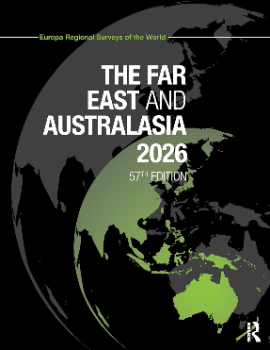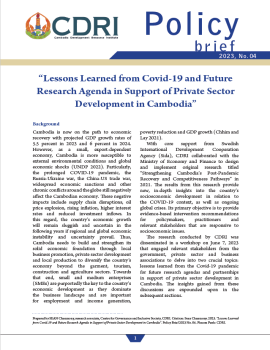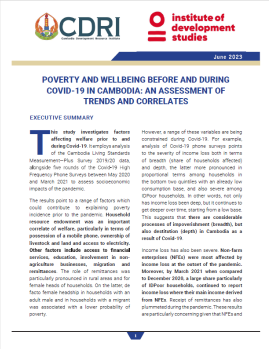
Abstract/Summary
COVID-19 has heavily affected Cambodian female garment workers’ economic security and personal well-being. The impacts are on employment, household income and expenditures, mental and physical health, remittances, investment, and savings. Recognizing this as a threat, the Royal Government of Cambodia has rolled out a new measure of temporary wage subsidy as part of a social assistance program for suspended garment workers, to a total of US$70 monthly to mitigate the impacts and support their livelihood. Hence, this study delved into the perspective and experiences of female garment workers in regards to this support and also examined its effectiveness. Consequently, three main findings have emerged. First, it is considered as an opportunity to support their survival in the short term. Second, there are several challenges revolving around money retrieval and distribution faced by workers. Third, it is viewed as not effective due to insufficiency in sustaining their livelihoods. Thus, several policy interventions are necessary to ensure efficiency in providing support towards female garment workers as follows:
- Review the current wage subsidy program;
- Strengthen the monitoring mechanism of the distribution of wages to the workers;
- Assess challenges of unmet beneficiaries;
- Promote well information distribution among workers; and
- Consider expanding the eligibility and coverage of support to reduced hours and informal workers.
This policy brief is published as a part of contributions to National Policy Forum: Cambodia's COVID-19 Recovery Pathways (p.61-69), supported by the Australia’s Department of Foreign Affairs and Trade through The Asia Foundation’s Ponlok Chomnes: Data and Dialogue for Development Program.



